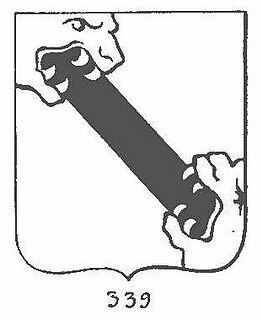Silva is a surname in Portuguese-speaking countries, such as Portugal and Brazil. It is derived from the Latin word silva, meaning 'forest' or 'woodland'. It is the family name of the House of Silva.
Vasco Joaquim Rocha Vieira, GCTE GCC GCIH ComA, is a retired Portuguese Army officer who was last Governor of Macau.

Francisco José Pereira Pinto Balsemão, is a Portuguese businessman, former journalist and retired politician, who served as Prime Minister of Portugal, from 1981 to 1983.

João Baptista da Silva Leitão de Almeida Garrett, 1st Viscount of Almeida Garrett was a Portuguese poet, orator, playwright, novelist, journalist, politician, and a peer of the realm. A major promoter of theater in Portugal he is considered the greatest figure of Portuguese Romanticism and a true revolutionary and humanist. He proposed the construction of the D. Maria II National Theatre and the creation of the Conservatory of Dramatic Art.

The Diocese of Lamego is a Roman Catholic diocese in Portugal.

Sancho de Tovar, 6th Lord of Cevico, Caracena and Boca de Huérgano was a Portuguese nobleman of Castilian birth, best known as a navigator and explorer during the Portuguese age of discoveries. He was the vice-admiral (soto-capitão) of the fleet that discovered Brazil in 1500, and was later appointed Governor of the East African port-city of Sofala by king Manuel I. In this post, he conducted several exploratory missions in the interior regions of present-day Mozambique.
Francisco de Paula Vieira da Silva de Tovar e Nápoles, 11th Lord of the Honour of Molelos, 1st Baron and 1st Viscount of Molelos (1774–1852) was a Portuguese military officer and politician. He is best known for his role in the Portuguese invasion of the Banda Oriental, under the reign of king John VI, as well as for his active participation in Portugal's resistance against the invading troops of Napoleon (1807–1810) and, towards the end of his life, for his support for the Absolutist or Traditionalist faction during the Portuguese Civil War, whose ranks he led as a General.

Nápoles is the name of a Portuguese family whose roots lie in the Kingdom of Naples. A claimed secondary branch of the royal Capetian House of Anjou, of the kings of Naples, the Nápoles descend from Stephen of Durazzo who moved to Portugal during the first half of the 14th century to join the ranks of King Afonso IV at the battle of Salado. It has been noted that this might be a posterior fabrication, for there is no notice of any such legitimate or bastard son of a Prince of Naples.
Henrique Esteves da Veiga de Nápoles, 1st Lord of the Honour of Molelos (1438–1502) was a Portuguese nobleman, privy counsellor and military, the eldest son of João Esteves da Veiga de Nápoles and his wife Leonor Anes de Vasconcelos.
The Honour of Molelos was a major lordship in Portugal. It was founded c.1455 by João Esteves da Veiga de Nápoles, heir to a Portuguese branch of the Capetian House of Anjou, the Nápoles family, in the name of his eldest son, Henrique Esteves da Veiga de Nápoles. It would survive until the extinction of the Portuguese lordships after the Liberal triumph of 1848. The Lords of Molelos were created Viscounts of Molelos by king John VI of Portugal in 1826 and later Counts of Molelos by Miguel I. Their historical seat has been the Palace (Paço) of Molelos, near Tondela.
Sancho de Tovar e Silva, jure uxoris Lord of the Honour of Molelos was a Portuguese nobleman and military man most notable for having been among the few companions of King Sebastian of Portugal who survived the disastrous Battle of Alcácer Quibir. He was later governor of Diu on behalf of Philip III of Portugal and held the rank of Almirante-mór in the Portuguese Navy.
Francisco Manuel Lopes Vieira de Oliveira Dias was a Portuguese politician.
Marshal is the highest rank in both the Brazilian Army and the Brazilian Air Force, although the latter is titled Marechal-do-Ar. These ranks are equivalent to that of Admiral in the Navy. A marshal is distinguished by using five stars, which for a marshal of the air are in the approximate position of Southern Cross and for a marshal in the army, in the form of "X". The five stars of Admiral are in the shape of a pentagon.
Francisco de Paula may refer to:
Miguel António de Sousa Horta Almeida e Vasconcelos, 2nd Baron of Santa Comba Dão was a Portuguese nobleman.

Tovar, usually preceded by the particle de, is a surname that was adopted in the Middle-Ages by a Castilian noble house that received the lordship of the village of Tovar from Fernando III. It has since spread to several Spanish and a few Portuguese branches.

The Ministry of Justice and Public Security, previously known as Ministry of Justice and Ministry of Justice and Citizenship, is a cabinet-level federal ministry in Brazil. The current Minister of Justice and Public Security is Sérgio Moro.






